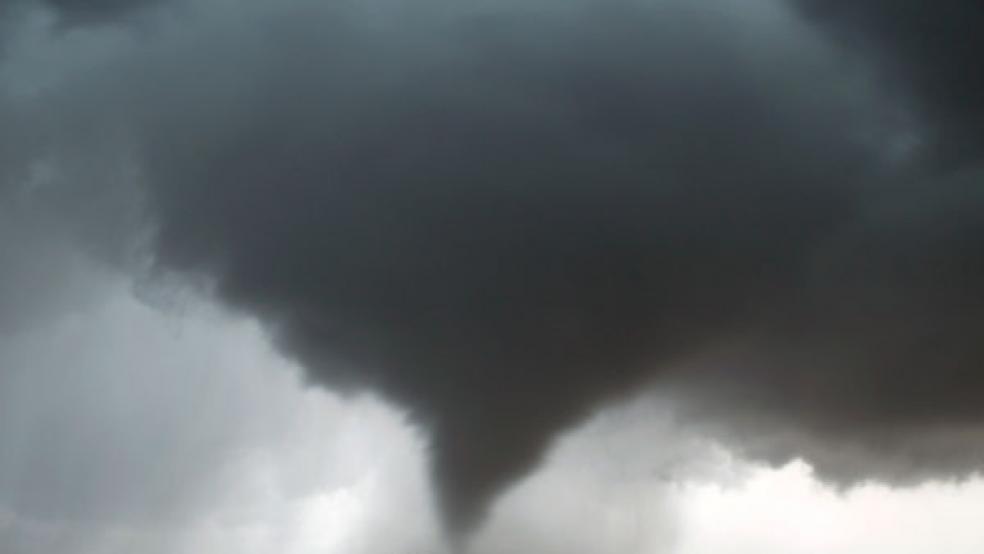Another week brings yet more warnings of a rocky week for the markets, this time coming from Calamatta Cuschieri, a European financial services firm.
“Tensions in Ukraine and Iraq will continue to drive volatility in the markets,” the group wrote in a research note published Monday morning. It then provided this advice: “Rather than trying to pick a bottom (which is impossible) look at the technical indicators and amalgamate them with fundamentals giving you a better picture for the long term.”
Related: How the U.S. Allowed ISIS to Form a Terrorist Army
Two months ago, this kind of volatility was completely missing from world markets. In June, market volatility was at a ten-year low, and global stocks were trading at all time highs.
Two months later, much has changed. Markets have been rocked with quick shifts caused by unrelated events around the world. Argentina defaulted on its debt. The crisis in Ukraine shows no sign of abating. Across the Middle East, a number of conflicts, from Israel to Syria and Iraq, have unnerved markets.
One month ago, the Dow was at 17,138. Yesterday, it closed at 16,596.
These crises have nothing to do with one another. But according to traders and market analysts, taken as a whole, a kind of global panic contagion has gripped Wall Street. This combined with an unprecedented bull market run and a relatively quiet summer up until now has created the perfect storm that has investors spooked.
Related: Putin’s Choice: Cut a Face-Saving Deal or Become a Pariah
“Ukraine, Gaza, and ISIS all happening at the same time is certainly a contributing factor,” an equities trader in Chicago told The Fiscal Times. “Oil is obviously a concern when the Mideast is involved, [also] natural gas in Europe with Ukraine.”
“We were at a 7-year low for volatility until about a few weeks ago,” the trader added. “The markets were so dead on a day-to-day basis, that eventually something had to give, and shock that volatility back to life. June was probably the most boring trading month I've ever had.”
Chad Deakins, manager of the RidgeWorth International Equity Fund for RidgeWorth Investments.
“The Ukraine situation started to flare up. We had the Malaysian Airlines incident, we have Ebola in Africa, then there was a second airline incident, and then the Israel Palestinian conflict,” Deakins said. “The markets have been backed into a risk [adverse] kind of mode.”
Related: Russian Oligarchs Are Tired of Funding Putin’s Land Grab
The timing of the crises has also fueled market volatility, according to the equity trader in Chicago.
“I think that fact that they're all happening at once is a contributing factor, because there hasn't really been much of a breather from day to day. There's something happening every day in one of these parts of the world. And because of that, people are a little more on edge,” the trader said. “When there was a report about troops massing along the Russian/Ukrainian border, the market dropped 100 points in 20 minutes. That's a pretty big drop these days.”
The trader also said that global events have given investors an excuse to sell after months of having no reason to.
“Basically no one has had a reason to sell anything for a long time, and I think people aren't used to that, so I think when some of these conflicts gain a little traction, it allows people to feel better about taking profits off the table,” the trader said. “I think people sort of got used to doing that more frequently, and being able to take money off the table allows people to recalibrate their feelings towards the market.”
Going to Last?
Out of all of the global crises, the Ukraine/Russia standoff is having the biggest impact on markets, Deakins said. The crisis entered a new phase today, with Russia sending aid trucks to Ukraine. Kiev said that it would not allow them to enter the country.
“The Ukraine situation is very real. Russia already annexed the Crimean peninsula. You have gas transmission issues,” Deakins said. “Sanctions are having a negative effective not just in Russia but in multinationals doing business in Russia.”
However, Deakins said that if the Ukraine crisis can be resolved, market volatility would likely decline.
“If we can find a resolution to that,” Deakins said, “it could go a long way toward allowing markets to proceed.”
Top Reads from The Fiscal Times
- Why Vietnam Will Be the Next Nuclear State
- Japan’s Pivot Away from the West Leads Back to China
- Obama’s Former Syria Ambassador Slams U.S. Policy


